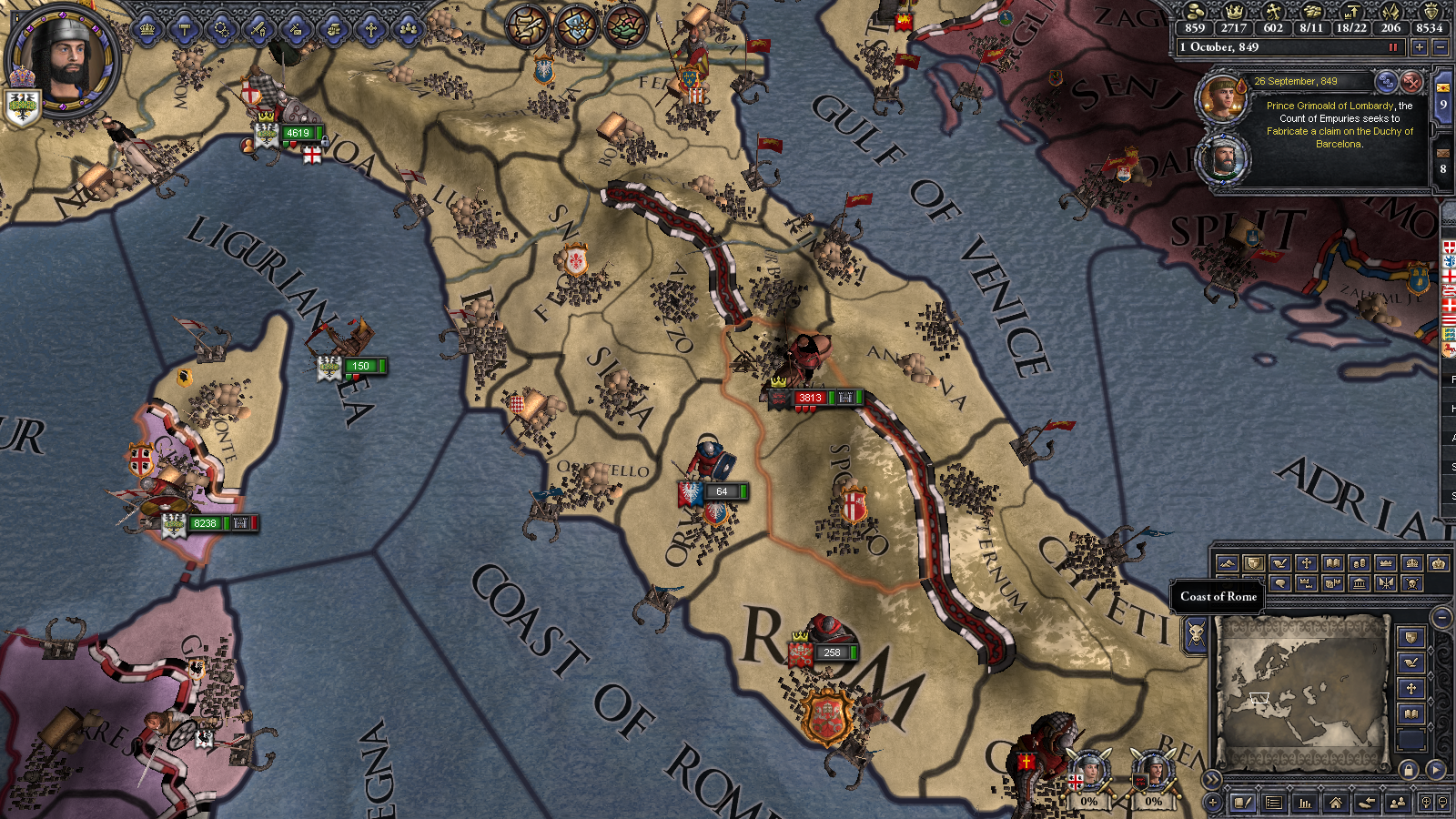I am very glad to see this back!  And not only did you become an emperor, but you got the Pope as a vassal! Good work.
And not only did you become an emperor, but you got the Pope as a vassal! Good work.
- 2
Thank you!I am very glad to see this back!And not only did you become an emperor, but you got the Pope as a vassal! Good work.
I'm sure they're not too thrilled about it. However, the Franks are also divided at this point, which gives the Alachislings the ability to try playing them against one another. Do that successfully, and the Franks may find themselves as no longer being a dominant power in the West...Oh my, an Empire in the West? The Franks can't be too happy can they? I'm sure they have imperial ambitions of their own, meanwhile to the South the Eastern Romans still have substantial holdings. Seems like a confrontation between the Lombards and its two large neighbors is inevitable if the Alachislings are to claim the legacy of Rome.
Nice to see this back, and congratulations on all the big life events!Before I knew it, over six months had passed since I last played CKII. I should be able to get more time to play now though, and am very much looking forward to playing through this scenario, especially as it seems to have gone very well for me on my return.
I'm sure the Emperor has some idea. After all, there are plenty of areas he can go. Work on conquering Spain, vassalize the Franks/French and Germans, expand into the pagan kingdoms to the east, go south into Africa. So many options.Nice to see this back, and congratulations on all the big life events!
The Lombards are doing quite well, and I'll be curious where they turn next with Italy almost all secured.




Ouch, tremendous losses, albeit softened a bit by the conquests in Iberia, Corsica, and Sardinia.Finally, the Iron Emperor was forced to concede that his bid for Calabria had failed. He sued for a white peace, avoiding a surrender, and returned home to Pavia with his retinue, now depleted to some 200 of his original over 6,000 men.
I wonder if the loss of good Lombard men was worth the lands of Navarra. Was the war there to block further Frankish expansion into Spain from the North? Their holdings in Valencia may yet give them another avenue to expand there, and with the Balearic Islands under Byzantine control it seems like the Western Mediterranean might be in for a few more wars between these 3 powers.The war against the Franks was costly and, like the Byzantines, was a roller coaster of events that resulted in a Lombard victory, then a Frankish one, and then a Lombard one and so on. However, by the 868, the Frank kingdom was well and finally defeated, and was forced to give up on its lands in Navarra.
The loss in the war with the Byzantines was really disheartening, I didn't believe they would be able to respond as effectively as they did. Early successes were not enough for me to force an early conclusion, and one they found peace with their Anatolian enemies, their full might was focused on me.Ouch, tremendous losses, albeit softened a bit by the conquests in Iberia, Corsica, and Sardinia.
I wonder if the loss of good Lombard men was worth the lands of Navarra. Was the war there to block further Frankish expansion into Spain from the North? Their holdings in Valencia may yet give them another avenue to expand there, and with the Balearic Islands under Byzantine control it seems like the Western Mediterranean might be in for a few more wars between these 3 powers.
